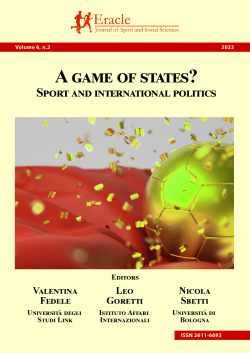A Game of State? Sport and International Politics

2022 was a momentous year in the history of international sport. Not only was an unprecedented ban on athletes from a traditional sports superpower like Russia introduced in many disciplines and events upon recommendation of the International Olympic Committee, as a result of Russia’s full-scale invasion of Ukraine; just a few weeks before, the 2022 Winter Olympics in Beijing had been boycotted at the diplomatic level by the US Biden administration, followed by some allies, in protest against the hosting country’s violation of human rights; and in the next months, the run-up to the men’s FIFA World Cup held in Qatar – the first Islamic country to organise the event – was dotted with heightened criticism by Western media and commentators focusing on labour and LGBT rights in the Gulf emirate, with local organisers and scholars retorting that this was all but another manifestation of a colonial attitude towards non-Western countries. While the debate on sporting bans, human rights and mega-events rages on through 2023, terms such as the ‘geopolitics of sport’, ‘sportswashing’ and ‘soft power’ have been widely used (and abused) in the media, while the banner of ‘apolitical sport’ has been raised once again by many governments and sports organisations in an effort to keep the focus on matches and medals.
-
Details
(edited by Valentina Fedele, Leo Goretti, Nicola Sbetti), Eracle. Journal of Sport and Social Sciences, Vol. 6 No. 2 (2023) -
ISBN/ISSN/DOI:
2611-6693


